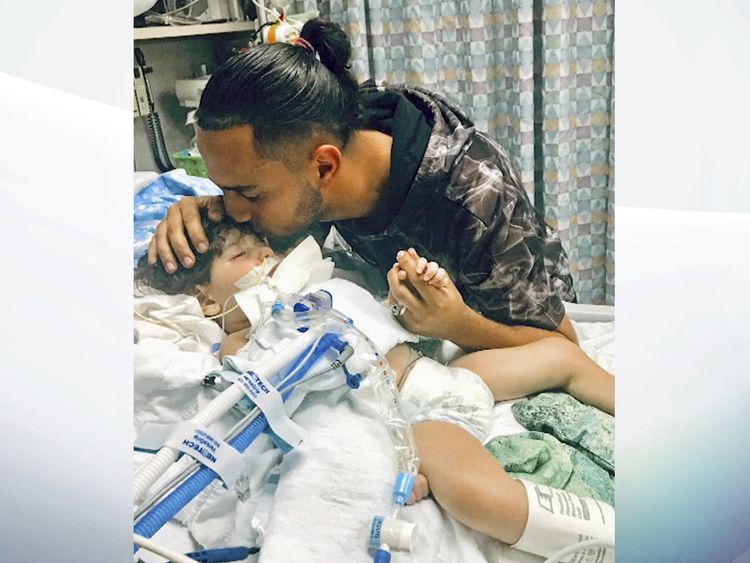A Yemeni mother has finally been able to hold her dying son after battling US immigration authorities for more than a year to earn the right to enter the country.
A touching photo showed the moment Shaima Swileh was able to cradle two-year-old Abdullah at a hospital in Oakland, California, where he remains on life support.
The mother arrived in San Francisco after the Council on American-Islamic Relations (CAIR) advocacy group sued the US, fighting for Ms Swileh to be granted a waiver from Donald Trump's travel ban.
Following a 17-month legal battle, she was granted a visa.
"This is a difficult time for our family, but we are blessed to be together," said Abdullah's father Ali Hassan as Ms Swileh arrived at San Francisco International Airport on Wednesday.
Mr Hassan, who, like his son is a US citizen living in Stockton, brought Abdullah to California this autumn to get treatment for a genetic brain disorder as his condition worsened.
The couple – married in war-torn Yemen in 2016 before moving to Egypt – have been trying to get Ms Swileh a visa since 2017 so the family could move to California.
As the youngster's health worsened, Mr Hassan took his son to California for medical care, but as they fought for a visa, Abdullah was put on life support.

Ms Swileh needed a waiver as citizens from Yemen and four other mostly Muslim countries – along with North Korea and Venezuela – are banned from entering the US under legislation enacted under Mr Trump.
At an emotional news conference earlier this week Mr Hassan said his wife had been calling him every day "wanting to kiss and hold her son for the one last time".
He said he was starting to lose hope and had considered taking his son off life support to stop him suffering further.
A hospital social worker soon flagged the case to CAIR, which sued on Monday.
The mother, who has now been given a visa to remain in the US, was granted a waiver the following day.
Robert Palladino, a State Department spokesman, said it was "a very sad case, and our thoughts go out to this family at this time".
He was not able to comment on the family's case but said cases were handled individually and that officials tried to facilitate legitimate travel while protecting national security.
More from California
"These are not easy questions," said the official.
"We've got a lot of foreign service officers deployed all over the world that are making these decisions on a daily basis, and they are trying very hard to do the right thing at all times."
[contf] [contfnew] 
Sky News
[contfnewc] [contfnewc]






